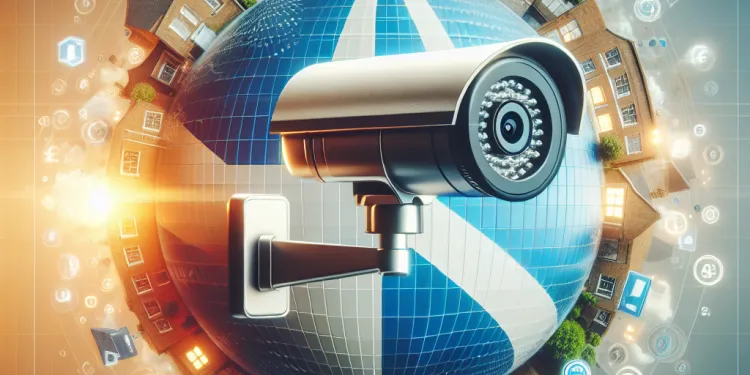
Find Help
More Items From Ergsy search
-
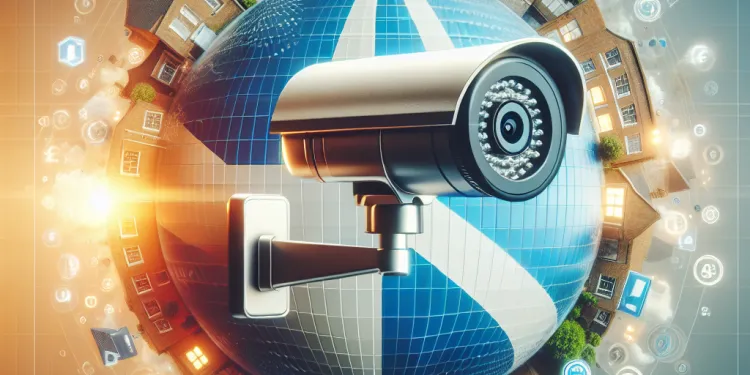
Is redirecting a security camera a solution?
Relevance: 100%
-

How can I stop my neighbour's security camera pointing at my property?
Relevance: 43%
-

Can I ask my neighbour to reposition their security camera?
Relevance: 42%
-

Is it legal for me to block the view of my neighbour's security camera?
Relevance: 42%
-
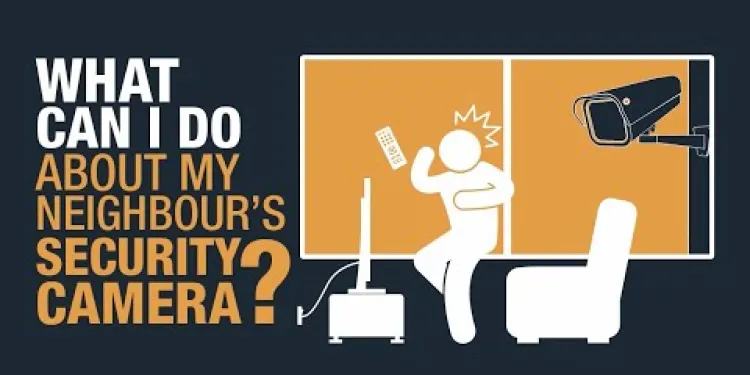
What can I do about my neighbour's security camera?
Relevance: 39%
-

How secure is the Ring Doorbell Camera system?
Relevance: 39%
-

What can I do about my neighbour's security camera?
Relevance: 38%
-
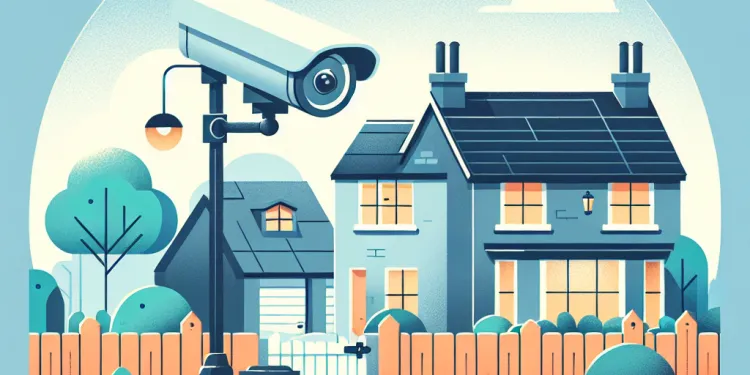
Can my neighbour legally point a security camera at my property?
Relevance: 38%
-

What if my neighbor claims the camera is for security but it points towards my property?
Relevance: 38%
-

What steps can I take if my neighbour refuses to reposition their security camera?
Relevance: 37%
-

How can I tell if a security camera is pointing at my property?
Relevance: 37%
-

Is it legal for my neighbor to have a security camera facing my property?
Relevance: 36%
-

What should I do first if my neighbor's security camera is pointed at my property?
Relevance: 34%
-
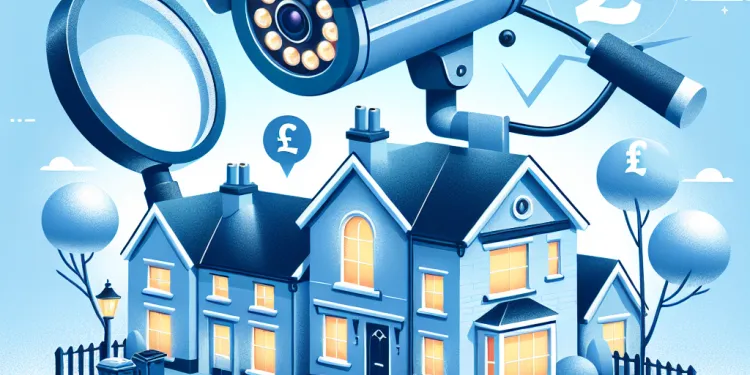
Can my neighbour use footage from their security camera as evidence in disputes?
Relevance: 33%
-

Can technology help in blocking the camera's view?
Relevance: 31%
-

Do neighbours need to inform me if their cameras record my property?
Relevance: 31%
-

How do Ring Doorbell Cameras work?
Relevance: 30%
-

Is the video quality of a Ring Doorbell Camera good?
Relevance: 29%
-

Are there any mediation services for resolving disputes over security cameras?
Relevance: 28%
-
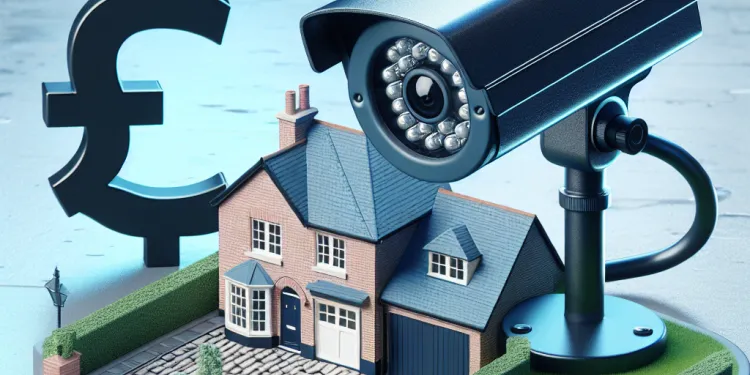
Is my concern valid if the camera is only monitoring my driveway?
Relevance: 28%
-

How can I disable my neighbour's security camera?
Relevance: 28%
-

What laws apply to the use of security cameras in the UK?
Relevance: 28%
-

How does a Ring Doorbell Camera work?
Relevance: 28%
-

Can a Ring Doorbell Camera record continuously?
Relevance: 27%
-
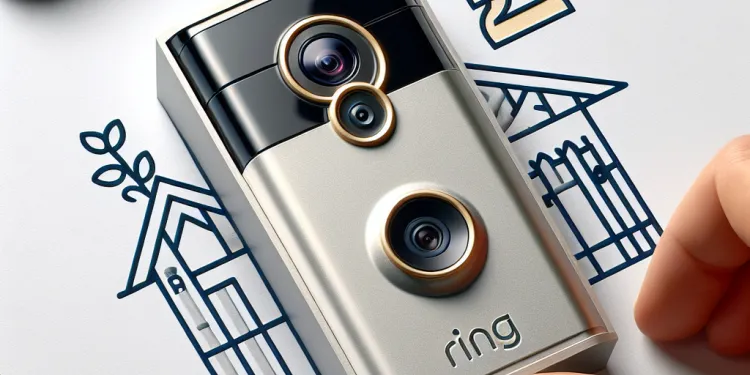
What is a Ring Doorbell Camera?
Relevance: 27%
-

Is it advisable to discuss camera placement before it becomes an issue?
Relevance: 27%
-

Can I install my own camera to monitor the area in question?
Relevance: 27%
-
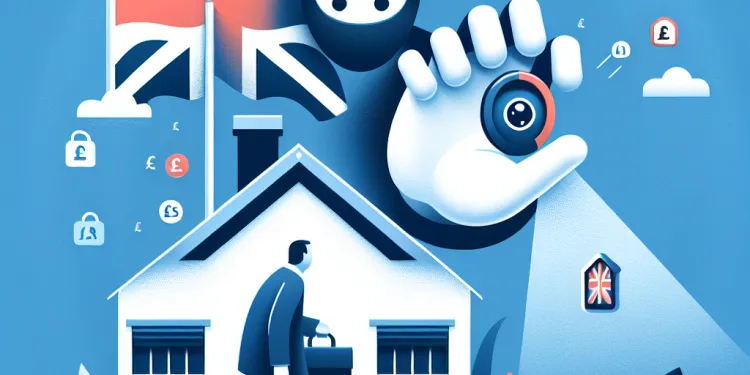
Can I ask for legal help to get my neighbor’s camera moved?
Relevance: 27%
-

Can I block the view of my neighbor's camera with physical barriers?
Relevance: 26%
-

Is the Ring app necessary for using a Ring Doorbell Camera?
Relevance: 26%
-

How do I install a Ring Doorbell Camera?
Relevance: 26%
-
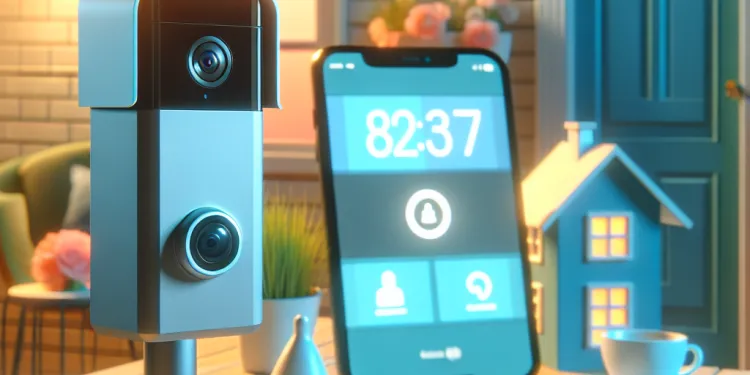
What happens if my Ring Doorbell Camera is stolen?
Relevance: 25%
-

Are there privacy laws that protect me from neighbor's cameras?
Relevance: 25%
-

Does a Ring Doorbell Camera work at night?
Relevance: 25%
-

What kind of notifications do Ring Doorbell Cameras provide?
Relevance: 25%
-

Should I contact the authorities if my neighbor refuses to adjust their camera?
Relevance: 25%
-

How can I verify the camera's field of view?
Relevance: 23%
-

Do Ring Doorbell Cameras support Alexa integration?
Relevance: 23%
-

Can I customize motion detection on my Ring Doorbell Camera?
Relevance: 22%
-

Is mediation a viable solution?
Relevance: 22%
The Basics of Security Camera Redirection
Security cameras are a critical component of modern security systems, providing surveillance over properties and areas where safety is a priority. In some cases, there may be discussions or plans to redirect the focus of these cameras. Redirecting a security camera implies adjusting its angle or focus to either broaden its field of view or to concentrate on specific, possibly new areas. The idea could stem from the need to cover blind spots, respond to new security concerns, or simply adjust to infrastructural changes in the environment.
Benefits of Redirecting Security Cameras
Redirecting security cameras can serve multiple purposes. Firstly, it can eliminate blind spots, enhancing the surveillance reach. This could be essential in areas where threats may emerge unexpectedly. Secondly, with a change in property layout or new security threats arising, redirecting can ensure continuous optimal coverage. For instance, a new entry point or a high-traffic area might require more focused attention. Lastly, redirecting cameras might also improve privacy if a camera's current positioning overlooks an area not intended for surveillance, complying with privacy laws such as the UK's General Data Protection Regulation (GDPR).
Challenges and Considerations
Despite the potential benefits, there are several challenges associated with redirecting security cameras. Firstly, it's not always an easy task and may require professional assistance, especially if the system is complex. Additionally, one must consider legal implications, ensuring that the new camera angle doesn't infringe on personal privacy of neighbors or passersby, adhering to CCTV legislation in the UK. Furthermore, redirecting a camera might leave the original area less covered, potentially creating new vulnerabilities.
Alternative Solutions
While redirecting cameras might seem an immediate solution, there are other alternatives to consider. Integrating additional cameras can provide comprehensive coverage without losing visibility on any crucial areas. Moreover, upgrading to cameras with a wider field of view or using smart camera technology equipped with motion detection can enhance security without needing drastic changes. These solutions might be more costly but could offer longer-term benefits and enhanced security.
Conclusion
Redirecting a security camera can indeed be a solution to specific problems in surveillance coverage. However, it is essential for property owners and managers in the UK to weigh the pros and cons, considering legal requirements, professional assessment, and potential alternative options. Ultimately, any decision should aim to enhance security coverage efficiently while adhering to privacy and legal standards. Considering both the technical and legal aspects will ensure that camera redirection, if chosen, serves its intended purpose without unintended consequences.
The Basics of Moving Security Cameras
Security cameras help keep places safe. Sometimes, you might want to change where these cameras look. This can mean pointing them at a new area or making them see more. You might do this to cover missed spots, protect new areas, or fit changes in the place.
Why Move Security Cameras?
There are many good reasons to move cameras. First, it can help see spots that were missed before. This is important for safety. Second, if there are new parts of a building or new places to watch, moving a camera can help. For example, a new door or busy area might need more attention. Lastly, moving a camera might also help with privacy. If a camera sees a place it shouldn't, moving it can follow privacy rules.
Things to Think About
Moving cameras can be hard. You might need help, especially if the system is big. Also, you need to make sure the new camera view doesn't see things it shouldn’t, like your neighbor's place. Moving a camera could leave the old spot less protected, which can be risky.
Other Ideas
Besides moving cameras, there are other ways to make things safer. Adding new cameras can help see everything. Cameras that see more or have smart features like motion detection can also help. These options might cost more but can keep things safe for a long time.
The Final Word
Moving a security camera can help with safety. But it is important to think about the good and bad sides. You have to follow rules and maybe get expert help. Other options might be better sometimes. Whatever you choose, make sure it keeps things safe and follows privacy laws.
Frequently Asked Questions
What does redirecting a security camera mean?
Redirecting a security camera means changing its position or angle to cover a different area than originally intended.
Is redirecting a security camera an effective solution for privacy concerns?
Redirecting a security camera can be an effective solution to address privacy concerns by ensuring it does not capture areas that violate individuals' privacy.
Can redirecting a security camera improve surveillance coverage?
Yes, redirecting a security camera may improve surveillance by focusing on areas that require more monitoring.
Does redirecting a security camera affect its recording quality?
Redirecting a security camera shouldn't affect recording quality, but the effectiveness depends on the new angle and coverage area.
Is it necessary to redirect security cameras frequently?
Frequent redirection may not be necessary unless there are significant changes in the monitored area or purpose for surveillance.
Does redirecting a security camera require professional assistance?
While basic redirections can be performed by the camera owner, professional assistance may be needed for optimal adjustments or installations.
Is redirecting a security camera legal?
Redirecting a security camera is generally legal, but it's important to ensure compliance with privacy laws and not to invade others' privacy.
Can redirecting help avoid blind spots in security coverage?
Yes, redirecting a security camera can help eliminate blind spots by adjusting its angle to cover previously unmonitored areas.
Is redirecting a security camera a permanent solution?
Redirecting can be a temporary or permanent solution depending on the need and how often the coverage area changes.
What tools are needed to redirect a security camera?
Tools may include a screwdriver, wrench, or specific tools for adjusting mounts and brackets depending on the camera model.
Does redirecting a security camera require adjusting its settings?
Yes, after redirecting, you may need to update settings like motion detection zones or focus to suit the new angle.
How does redirecting a camera impact its field of view?
Redirecting a camera changes its field of view, either expanding or reducing the area covered based on the new position.
Is redirecting a security camera a cost-effective solution?
Redirecting a security camera is a cost-effective solution as it does not require additional purchases, just adjustment of existing equipment.
Can camera redirection solve all security issues?
No, while it can address specific coverage needs, a comprehensive security strategy includes other measures like lighting and multiple cameras.
What are the limitations of redirecting a security camera?
Limitations may include camera capabilities, such as field of view constraints, or infrastructural limitations like mount positioning.
How do I decide when to redirect a security camera?
Consider redirecting if there are changes in the monitored area, persistent security breaches, or privacy complaints that aren't addressed.
Are there risks in redirecting a security camera?
Risks may include unintentionally creating new blind spots or missing critical areas if adjustments are not well considered.
Does redirecting a camera affect data storage needs?
Redirecting alone does not directly affect data storage needs, but changes in recording duration or resolution settings might.
What is a common reason for redirecting a security camera?
Common reasons include addressing changes in the monitored area, improving security coverage, or responding to privacy concerns.
Can redirecting a security camera be part of routine maintenance?
Yes, regular assessments may indicate the need for redirection as part of optimizing surveillance efficiency and maintaining security integrity.
What does redirecting a security camera mean?
Redirecting a security camera means moving the camera to look somewhere else. It is like when you point your flashlight to see better in the dark. A security camera can be turned or moved to check another place.
To help understand better, you can:
- Look at pictures of security cameras.
- Watch videos about how cameras work.
Moving a security camera means turning it or pointing it in a new direction. This way, it can look at a different area than it did before.
Can moving a security camera help protect people's privacy?
People want to feel safe at home and work. Sometimes, security cameras worry people because they feel like they are being watched. Moving the camera can help stop these worries.
Using cameras responsibly and only where needed is also important. Always let people know about cameras.
If you feel unsure, talk about privacy with someone you trust.
Tools that can help:
- Privacy signs: Put up signs to tell people cameras are there.
- Privacy screens: Use covers to block camera view when not needed.
Remember, it's important everyone feels safe and comfortable.
Turning a security camera can help keep people's privacy safe. It stops the camera from seeing places it should not.
Can moving a security camera help see more?
Yes, moving a security camera can help. It lets the camera see the places where we need to watch more closely.
Will moving a security camera change how well it records?
Turning a security camera to a new direction won't make the video look worse. But, how well it works depends on what it can see in the new spot.
Do we need to move security cameras a lot?
You don't need to change things a lot unless big changes happen in the area you are watching or in the reason you are watching.
Do I need a professional to move a security camera?
If you want to move where the camera looks, you can do some things yourself. But, if you want the camera to work the best, you might need to ask for help from someone who knows a lot about cameras.
Can I point a security camera to another place?
Pointing a security camera in a new direction is usually okay to do. But you must follow the rules about privacy and make sure you are not spying on other people.
Can changing direction help fix holes in security?
When we look at security, it is important to see everything clearly. Sometimes, there are areas called "blind spots" where we might miss things. This can be a problem for safety. "Redirecting" means changing how we look or focus on things.
Using tools like cameras or mirrors can help us see these blind spots better. It is like when you use a mirror in a car to see behind you. Asking for help from someone else to check our blind spots can also be a good idea.
So, yes, changing direction can help us find holes in security. It is important to always keep checking and looking from different angles to stay safe.
Yes, you can change where a security camera is pointing. This helps it see areas that were not watched before.
Can moving a security camera fix the problem forever?
Redirecting means sending people to a different place.
This can be for a short time or a long time. It depends on what you need and how often things change in the area you cover.
What do you need to move a security camera?
Here are the things you might need:
- A ladder to reach the camera if it is high up.
- A screwdriver to take off or put on screws.
- Instructions from the camera guide.
- Ask an adult for help if you need it.
If reading is hard, try these tips:
- Use pictures or videos to understand better.
- Get help from a friend or family member.
- Break down the task into smaller steps.
You might need some tools. These can be things like a screwdriver, a wrench, or other special tools. It depends on what camera you have and what you need to fix or change.
Do you need to change settings on a security camera if you move it?
Yes, after you point the camera in a new direction, you might need to change some settings. This can include adjusting the areas where the camera looks for movement or changing the focus. This is so the camera works well in the new direction.
What happens to what a camera sees when you point it somewhere else?
When you move a camera, you change what it can see. It might see more things or fewer things, depending on where you put it.
Is it cheap to move a security camera?
Moving a security camera is a smart way to save money. You don’t need to buy new stuff—just change the camera you already have.
Can moving cameras fix all safety problems?
No, it can't do everything. It's good for some things, but you need other tools too. You also need lights and more cameras to keep everything safe.
What can't a security camera do when you move it?
Here are some things a security camera might not be able to do if you move it:
- The camera might not see everything you want if you point it somewhere else.
- It could miss important areas or details if not placed correctly.
- If you move it a lot, it may be harder to watch the video later.
Here are some helpful tools and tips:
- Ask someone for help if you don't know where to put the camera.
- Use a map or drawing to plan where to point the camera.
- Check the camera view after moving it to make sure it sees what you need.
There are some things that can be a problem. One is the camera. It might not see wide enough. Another problem is where you put the camera. It might not have a good place to sit.
When should I move a security camera?
Here are some tips to help you:
- Look for problems: Check if there are any areas the camera isn't seeing well.
- Think about changes: If you change the room or garden, you might need to move the camera.
- Ask for help: If you're not sure, ask someone you trust to help you decide.
Tools that can help: paper and pen for planning, asking a friend, or using a phone to check the view.
Think about changing things if there are problems that keep happening. For example, if there are break-ins or if people are upset about their privacy, and these problems are not being fixed.
Some helpful tools can be:
- Using a simple checklist to spot changes.
- Setting up alerts if there is a security issue.
- Talking to people to make sure they feel safe.
Can moving a security camera be risky?
There are some things to be careful about. If changes are not done the right way, you might miss seeing important things. This can lead to mistakes.
Does moving a camera change how much storage you need?
If you move the camera, will you need more or less space to save videos?
Using simple words can help. Drawings or talking can make it clearer.
Changing where you send something does not change how much space you need to save data. But if you make videos longer or clearer, that can change how much space you need.
Why do people move security cameras?
People might move security cameras for different reasons. Here is one simple reason:
- To see better: Sometimes, moving the camera helps to see important areas clearly. This makes sure that everything is safe.
To help you read better, you can:
- Ask someone to read with you.
- Use apps that read text aloud.
People change security systems for a few reasons. They might want to watch new areas, make sure the place is safer, or because they worry about privacy.
If reading is hard, you can use tools that read text out loud. You can also ask someone to explain things to you.
Is moving a security camera something we do to keep it working well?
Yes, checking things often can show us if we need to change how we watch things to make it work better and keep everything safe.
Useful Links
This website offers general information and is not a substitute for professional advice.
Always seek guidance from qualified professionals.
If you have any medical concerns or need urgent help, contact a healthcare professional or emergency services immediately.
- Ergsy carfully checks the information in the videos we provide here.
- Videos shown by Youtube after a video has completed, have NOT been reviewed by ERGSY.
- To view, click the arrow in centre of video.
- Most of the videos you find here will have subtitles and/or closed captions available.
- You may need to turn these on, and choose your preferred language.
- Go to the video you'd like to watch.
- If closed captions (CC) are available, settings will be visible on the bottom right of the video player.
- To turn on Captions, click settings .
- To turn off Captions, click settings again.
More Items From Ergsy search
-

Is redirecting a security camera a solution?
Relevance: 100%
-

How can I stop my neighbour's security camera pointing at my property?
Relevance: 43%
-

Can I ask my neighbour to reposition their security camera?
Relevance: 42%
-

Is it legal for me to block the view of my neighbour's security camera?
Relevance: 42%
-

What can I do about my neighbour's security camera?
Relevance: 39%
-

How secure is the Ring Doorbell Camera system?
Relevance: 39%
-

What can I do about my neighbour's security camera?
Relevance: 38%
-

Can my neighbour legally point a security camera at my property?
Relevance: 38%
-

What if my neighbor claims the camera is for security but it points towards my property?
Relevance: 38%
-

What steps can I take if my neighbour refuses to reposition their security camera?
Relevance: 37%
-

How can I tell if a security camera is pointing at my property?
Relevance: 37%
-

Is it legal for my neighbor to have a security camera facing my property?
Relevance: 36%
-

What should I do first if my neighbor's security camera is pointed at my property?
Relevance: 34%
-

Can my neighbour use footage from their security camera as evidence in disputes?
Relevance: 33%
-

Can technology help in blocking the camera's view?
Relevance: 31%
-

Do neighbours need to inform me if their cameras record my property?
Relevance: 31%
-

How do Ring Doorbell Cameras work?
Relevance: 30%
-

Is the video quality of a Ring Doorbell Camera good?
Relevance: 29%
-

Are there any mediation services for resolving disputes over security cameras?
Relevance: 28%
-

Is my concern valid if the camera is only monitoring my driveway?
Relevance: 28%
-

How can I disable my neighbour's security camera?
Relevance: 28%
-

What laws apply to the use of security cameras in the UK?
Relevance: 28%
-

How does a Ring Doorbell Camera work?
Relevance: 28%
-

Can a Ring Doorbell Camera record continuously?
Relevance: 27%
-

What is a Ring Doorbell Camera?
Relevance: 27%
-

Is it advisable to discuss camera placement before it becomes an issue?
Relevance: 27%
-

Can I install my own camera to monitor the area in question?
Relevance: 27%
-

Can I ask for legal help to get my neighbor’s camera moved?
Relevance: 27%
-

Can I block the view of my neighbor's camera with physical barriers?
Relevance: 26%
-

Is the Ring app necessary for using a Ring Doorbell Camera?
Relevance: 26%
-

How do I install a Ring Doorbell Camera?
Relevance: 26%
-

What happens if my Ring Doorbell Camera is stolen?
Relevance: 25%
-

Are there privacy laws that protect me from neighbor's cameras?
Relevance: 25%
-

Does a Ring Doorbell Camera work at night?
Relevance: 25%
-

What kind of notifications do Ring Doorbell Cameras provide?
Relevance: 25%
-

Should I contact the authorities if my neighbor refuses to adjust their camera?
Relevance: 25%
-

How can I verify the camera's field of view?
Relevance: 23%
-

Do Ring Doorbell Cameras support Alexa integration?
Relevance: 23%
-

Can I customize motion detection on my Ring Doorbell Camera?
Relevance: 22%
-

Is mediation a viable solution?
Relevance: 22%


